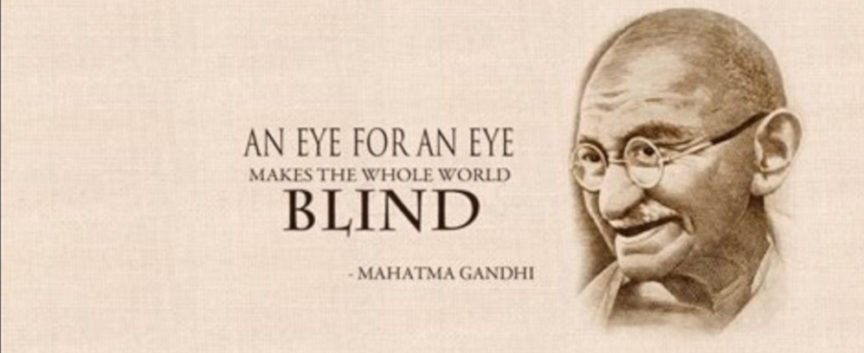“You have heard the law that says the punishment must match the injury: ‘An eye for an eye, and a tooth for a tooth.’ But I say, do not resist an evil person! If someone slaps you on the right cheek, offer the other cheek also. If you are sued in court and your shirt is taken from you, give your coat, too. If a soldier demands that you carry his gear for a mile, carry it two miles. Give to those who ask, and don’t turn away from those who want to borrow.
Matthew 5:38-42, NLT
The absence of a code of conduct can be seen, very early, in the Genesis account of the progress of humanity. Lamech, a relative of Cain, five generations removed, said to his wives, “I have killed a man for wounding me, a young man for striking me. If Cain is avenged sevenfold, truly Lamech seventy-sevenfold.” Genesis 4:23-24.
Ever felt like Lamech? Someone wounds you physically, financially, or emotionally and you want to make them pay for your pain. It’s the way our world operates. Take them to court or ruin their reputation or slit their tires. None of these strategies is above the human race.
The law of Moses was extraordinary for its time because of its restraint and control. Before the Law of Moses (and also the Code of Hammurabi 1795-1750 BC), society operated without any legal boundaries. Before these laws, if someone harmed you, it was probable that you would extract revenge from them, greater than the first offense, rather than seek a just settlement.
After the law codes were enacted, harm was repaid with an equivalent amount of pain, be it financial or legal. The law prohibited people from acting on their own and acting unreasonably.
But this was not how God created us to be. These law codes only addressed the violation itself. The law did not propose to end the offense. In this instruction to turn the other cheek, Jesus tells us to not respond to the violence. This is another example of Jesus elevating the standard by reminding us of what God expects from us. It’s hard to obey.
Humans have a strong tendency to look for the exceptions. “What about this?” and “What about that?” Jesus tells us to think about the ideal and begin from there. There are two important steps needed for this.
- The first step is to suppress the desire to lash out and get revenge.
- The second step is to examine the belief that is the source of the vengefulness. Most notably, there is the belief that I must fight for my rights at all costs. A second belief is that injustice must be met with punishment.
The dilemma of this instruction is whether one will believe Jesus who said that the first will be last and who, according to Isaiah, “was oppressed, and he was afflicted, yet he did not open his mouth.” Isaiah 53:7.
Prayer: Jesus, you above all other people, taught us how to turn the other cheek. You went obediently to the cross without uttering a word. But so often we lash out when someone hurts or offends us, and this is not according to the model you gave us. Please help us to turn the other cheek. It’s a better way to live. In Jesus’ name. Amen.

